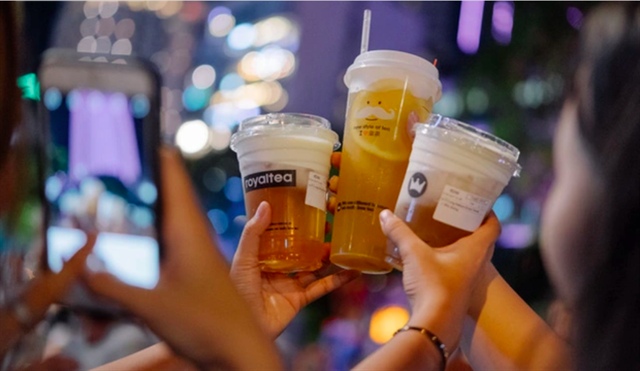Vietnam remains SEA’s third largest bubble tea market: Report
Vietnam remains SEA’s third largest bubble tea market: Report
Traditional big in coffee culture (2nd largest coffee producer in the world after Brazil, bubble tea has gained prominence in recent years with the influx of bubble tea brands.
Southeast Asia has become a major market for bubble tea brands with a turnover of US$4.66 billion last year, in which Vietnam ranked third in the region with $360 million.
The results of the study are published in the ‘Bubble Tea in Southeast Asia’ report by Momentum Works-qlup report, which provides in-depth analyses and insights into the business dynamics behind Southeast Asia’s favorite drink.
Under the report, Indonesia claimed the top spot as the largest bubble tea market in Southeast Asia at $1.6 billion, followed by Thailand at $740 million.
Singapore, Malaysia, and the Philippines stood at respective fifth, sixth, and seventh ranks with their market sizes of $340 million, $330 million, and $280 million.
According to the report, Singapore has the smallest population but the highest spending power, as the average price in Singapore is double that of other countries in the region.
The report also noted that Taiwanese bubble tea brands have long dominated the Southeast Asian market. Still, things could change as their competitors from mainland China, such as Mixue, Chagee, and HEYTEA are venturing into the region.

In Southeast Asia, vast local brands have emerged, but most remain single-country-focused. Source: Momentum Works and qlup. |
This came from the fact that the landscape in China, estimated at $20 billion per year, has come to a saturation point and is hyper-competitive.
The report noted Southeast Asia offers diverse test ground for Chinese brands expanding overseas: mass market-focused Mixue started with Vietnam, whilst premium-focused HEYTEA chose Singapore.
“Many young people in Southeast Asia want to open a bubble tea shop someday. Though there are high margins, bubble tea is a low-differentiation game with easily replicable products and a challenging supply chain. The pandemic served as a natural selection process as many stores shut down. However, consumers’ love for bubble tea won’t change anytime soon, but they will vote for their favorite brands with their wallets,” said Sik Hoe Yong, Chief Operating Officer of qlub.

Bubble tea has gained prominence in Vietnam in recent years with the influx of bubble tea brands. File photo |
In Vietnam, bubble teas have been seen as a widely favorite drink for the youth, but this also leads to fierce competition among foreign and local brands.
“The market is fragmented, and unlike internet companies, there is enough room for larger and smaller bubble tea players to co-exist and flourish. The emergence of Chinese players who are good at branding, product/supply chain, and cost management could pose an increasing challenge to existing local players. It’s not difficult to observe and learn their play and strategy, but more important is to ensure positive unit economics and good return on investment,” Jianggan Li, Founder and CEO of Momentum Works added.





















